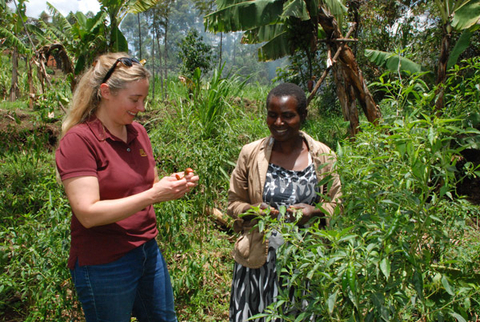USDA Foreign Agricultural Service funds projects that engage farmers in school meal programs
In the past decade, Extension’s work in East Africa has focused on agriculture, especially in Kenya where the majority of small farms are operated by women. A new three-year partnership aims to benefit Kenyan women and youth farmers through participation in the school meals value chain. Extension partners include Kisii and Chuka universities and Fie_Labs, an innovation and entrepreneurship hub.
With $616,720 in funding from the U.S. Department of Agriculture Foreign Agricultural Service, this work will address USDA/FAS’s commitment to increasing the success of school meals programs globally and contributing to the initiative on the 2026 International Year of Woman Farmer.
According to John Vreyens, Extension’s director of Global Initiatives, plans are being put in place to ensure the accomplishments of women farmers can be sustained after the project ends. “The partnership among the three universities will build a network of support on the ground,” says Vreyens. “This includes cooperatives and business training for the women farmers to establish the matrix for the long-term success of the school meal value chain in four counties of the country.”
According to the USDA, project activities include:
- Intensification of horticulture crop production and support through demonstrations and Extension education
- Organizing and registering the local community-based groups of women farmers into member cooperatives with relevant training
- Developing efficient systems for identifying the markets and needs of the schools for food produce
- Introducing nutrition education to schools
University of Minnesota Extension’s global work began during World War I, focusing on agricultural exports. In Kenya, recent collaboration has resulted in better solutions to crop losses that happen when crops spoil between harvest and getting them to the market. Improving handling and storage practices can reduce losses by 25 percent and improve the quality of produce taken to market.
“We want to build upon that relationship,” says Vreyens. “Minnesota is a leader in farm-to-school programs, and while systems differ greatly in Kenya, we can make the most of this opportunity for Kenyan farmers to nourish students and earn a living for themselves and their families.”
Permission is granted to news media to republish our news articles with credit to University of Minnesota Extension. Images also may be republished; please check for specific photographer credits or limited use restrictions in the photo title.


